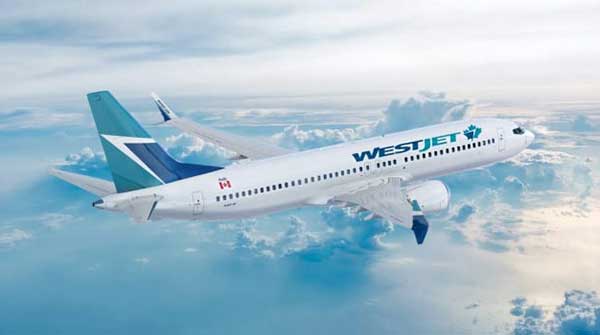Do WestJet shareholders really believe this is the best way to run an airline?
 If your flight in Canada is delayed more than three hours and it’s the airline’s fault, you are entitled to compensation.
If your flight in Canada is delayed more than three hours and it’s the airline’s fault, you are entitled to compensation.
WestJet recently gave me $1,000 when I arrived home 13 hours after the scheduled arrival time. But collecting from the airline isn’t easy. You need a computer, hours of free time, and lots of patience.
The rules for compensation are outlined under the Air Passenger Protection Regulations (APPR). Compensation depends on how long your flight is delayed: between three and six hours, the amount is $400; between six and nine hours, it’s $700; and more than nine hours, it’s $1,000. Those amounts are for large airlines; smaller airlines’ compensation ranges from $125 to $500. In all cases, this compensation applies only if the delay was within the control of the airline – so delays due to bad weather, for example, are not covered.
 |
| Related Stories |
| Why has WestJet lost its fun (and competitive advantage)?
|
| We can’t just pour more money into Air Canada
|
| What does the future hold for Canada’s airline industry?
|
Delays have increased dramatically since people returned to flying after COVID-19 restrictions were lifted. Airlines are increasingly operating with a barebones staff, and often, a full crew is unavailable. When airplanes arrive late, time is needed for proper cleaning and servicing – which often leads to even more delays.
Between June 19 and July 16, only half of Air Canada’s flights were on time. For WestJet, 64 percent of its flights arrived on time. Both are well below the five largest airlines in the U.S., which have on-time performances between 68 and 83 percent. The general industry target is 80 percent on time.
I recently was booked on a 90-minute flight from Calgary to Regina, but the flight was cancelled because WestJet didn’t have a full crew.
So here’s what WestJet offered me: a night at The Westin Hotel near the Calgary Airport and $30 in food vouchers. WestJet also offered a much longer ride home, rebooking me to leave Calgary at 9:00 a.m. for a 90-minute flight to Vancouver, wait 90 minutes, then fly to Regina for two hours and five minutes.
That got me home just after 2:00 p.m. – more than 13 hours after the originally scheduled arrival time. I asked about a direct flight, but I would not be able to leave Calgary until 6:15 p.m. and arrive home at 7:45 p.m. – about 19 hours after my scheduled arrival time. I opted for the earlier arrival time, which meant the longer, scenic route from Calgary to Vancouver to Regina. I’m glad I was on the 9:00 a.m. flight because, when I arrived at the airport, I found out the 10:00 a.m. WestJet flight to Vancouver was cancelled.
When I got home, I clicked on the WestJet link to apply for compensation. It wasn’t easy finding the link. Of the 13 emails and text messages WestJet sent me regarding this cancellation, only one had the link for compensation. I filled out the form and was told there would be a response within 30 days. Twelve days later, I received an email saying I was eligible to receive $1,000 in compensation. Great, I thought. So where’s the money?
I read on and found out that, within the next seven to 10 business days, I would receive two more emails to provide details on how to obtain my compensation. The email closed by saying, “We hope to have the opportunity to welcome you on board again soon.” My priority, however, was getting my compensation rather than booking another flight.
It took another five days for the emails to arrive that explained how I could receive the money.
On the “Claim Your Payment” email, I had to select a transfer method: I chose to deposit to my bank account. Then, I had to provide the institution, transit, and account numbers, which I found by searching my bank’s website.
Next, I had to click on the “Hyperwallet Electronic Signature and Communications Delivery Policy” document, which was two pages. I read this over and related that I agreed.
And then there was another box to click on, the “Hyperwallet Terms and Conditions” – which turned out to be 38 pages. I considered having my lawyer look things over. I’m sure WestJet had their corporate lawyers check this out. I skimmed the legalese and clicked yes.
As well as providing my name, address, phone number, and birthdate – all reasonable to reduce the possibility of fraud – there is also a drop-down menu for “occupation.” I don’t see why WestJet suddenly needed to know what line of work I’m in, as they didn’t ask this when I booked my flight. Now they wanted to know my occupation. There were more than 300 occupations listed. That’s right, 300. I clicked on “other.”
The $1,000 arrived in my bank account the next day.
From the time I arrived home to the time the money arrived, I had lots of time to think things through. I wondered how many of my fellow passengers on the cancelled flight also received the $1,000 they were each entitled to.
Some quick math: A Dash-8 was going to be used on the flight. Let’s assume it would be 80 percent full, meaning 64 passengers. Even if only half of them – 32 passengers – bothered to find the link and had the patience to do all the clicking – including reading the 38 pages of the “Hyperwallet Terms and Conditions” – that would be $32,000 that WestJet paid out. Plus, there were hotel and meal vouchers of about $250 per person for, let’s say, all 64 passengers. That’s another $16,000 to bring the total to $48,000 for this one delayed flight.
Think how that adds up when you consider the number of delayed and cancelled flights every day across Canada.
As I was checking out of the hotel, I asked the front desk person how often they had to accommodate people because of cancelled flights. She said there were usually about 20 guests per night; a co-worker leaned over and said she estimated it was more like 100 per night. That’s just one hotel in one city; imagine how many hotel guests of the airlines there are each night across Canada. Airlines are helping to keep nearby hotels in business.
Airlines could save money by ensuring they have crew members on standby. If they already have some on standby, they obviously need more. The correct number of people on standby would be to ensure no flights are cancelled.
Yes, the airlines will have to pay these people just to be available should a regular crew member not be available for any reason. It’s done in many other businesses that cannot simply cancel their regular operations one-third or one-half of the time. If they did, they wouldn’t be in business very long.
I wonder if WestJet shareholders believe the current system is really the best way to run an airline. For customers, WestJet needs to be as fast in getting compensation in their hands as they are when sending emails reminding people about their latest points totals or telling them about the latest sale prices. But the best solution is for airlines to get their airplanes to land on time.
Dale Johnson is an award-winning author, broadcaster and journalist who has worked in TV, radio, print and online.
For interview requests, click here.
The opinions expressed by our columnists and contributors are theirs alone and do not inherently or expressly reflect the views of our publication.
© Troy Media
Troy Media is an editorial content provider to media outlets and its own hosted community news outlets across Canada.
